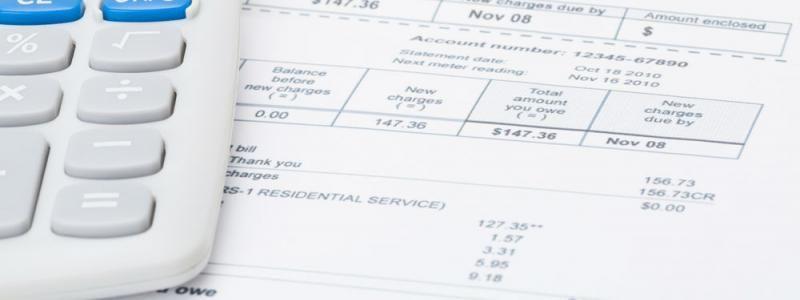Is Your Cable Company Using Metered Data?

When cell phone service providers first introduced data plans, everyone had an unlimited amount to use each month for a single, equal charge. Currently, there are cellphone data tiers that users must choose for their particular plan to access the Internet on-the-go. This same concept is being introduced by several cable companies for their household broadband access. Consumers will pay for a certain amount of data each month based on their needs. This new billing strategy is actually beneficial for every party involved when it is analyzed from several different angles.
Understanding Data Use
Consumers are cutting the traditional cable line and relying on broadband to stream their favorite television shows in many households. Both video and audio streamed across cable lines takes up a lot of data, and these lines only have so much space to service every customer efficiently. In fact, a household that streams 100 hours of high-definition programming on their broadband line will use 300 gigabytes of data. That huge data usage is making cable companies think twice about their general pricing for this service.
Cable Companies and Equipment Costs
As technology continues to improve, cable companies must follow suit. High-definition, 3D movies and television programming require cable lines that support these features. In response, cable companies install equipment that's largely unknown to most consumers. Fiber optic lines and specialized transformers, for example, are hidden from most consumers' views. However, they still expect their service to reflect the changing times, so cable companies add expensive equipment to stay competitive within their markets. When the equipment is used at its capacity, such as with data usage, it wears down and may be obsolete within a few years. Cable companies must use data charges to support their equipment, but not everyone subscribes to the Internet.
Unfair "Equal" Pricing
The idea behind a general data usage fee is equal pricing. The cable company uses complex calculations to figure out a reasonable rate that everyone pays for each month. However, this calculation is based on every household connecting to the Internet. Some households can't afford the "equal" pricing, and they're left out accordingly. With this in mind, cable companies are actually losing money when they don't adhere to a tiered data billing structure. Creating different pricing for data access could put everyone on the Internet map.
Data Tier Explanation
Consumers might be confused by the tiers themselves. Cable companies using tiers will divide data usage limits and define them for the consumer. For limited access, consumers could pay a specific amount for 1GB of data. The next tier could be up to 5GB of data. For customers using streaming data most of the month, an unlimited access tier is usually available. The cable company should provide clear tiers and pricing for consumers before changing anyone over from an unlimited structure.
Affordability for Everyone
A positive side effect to tiered or metered data is Internet access for everyone. The Internet is a treasure trove of important information, so it's critical for everyone to have access to it within the home. Low-income and elderly people, for example, can pay for the limited access tier and still afford it within their budgets. As a result, they can look up medical information, pay bills and even socialize with family and friends through various social media websites. Without metered data, these consumers would be left out of the Internet revolution.
Encouraging Better Service From Cable Companies
Metered data brings more consumers on-board with Internet access. As a result, cable companies have more revenue coming into their bank accounts. They're able to update their equipment more often and stop outages from occurring in the first place. If cable companies remain stagnant with general data charges, they may not have the funds to repair the equipment when necessary. Consumers will deal with streaming failures and other outages that can be otherwise avoided with metered data charges.
Tracking Usage is Getting Easier
Some consumers might be concerned about losing track of their data usage when it's not unlimited. Cable companies are making it easier to track usage almost up to the minute. Apps on smartphones and tablets make the process simple as consumers access their account. In many cases, the cable company doesn't charge for the data to access their website. Consumers simply need to acclimate to the new data environment or pay for the unlimited access. Over time, metered data will benefit everyone with widespread access to the Internet.
It's important to note that most household energy usage is metered, including natural gas and electricity. Cell phone and cable data access with tiered billing structures may not be appealing at first, but consumers will notice better quality streaming and equipment types over time. Unlimited data access will still be an option, but consumers will pay a premium for the opportunity.
Related Blog Articles
- Introducing AirConsole: A Games Platform That Turns Smartphones Into Controllers
- Ericsson CEO: 5G Won’t Just Be About Speed
- Is Comcast Planning To Offer Wireless Services?
- Smartphone Shipments In Third Quarter Hit Near-Record Numbers
- New York Launches Investigation into Major Internet Providers
- Is T-Mobile Planning A Video Streaming Service That Does Not Affect The User’s Data?
- Sprint Introduces New $40 Unlimited Data Plan, But Is It Really Unlimited?
- South Korea’s SK Telecom Declares It Will Be First 5G Network Provider In The World
- Merged Wireless Power Groups Now Known As AirFuel Alliance
- Microsoft To Email Invites For Cortana For iOS In The Coming Weeks


 Menu
Menu